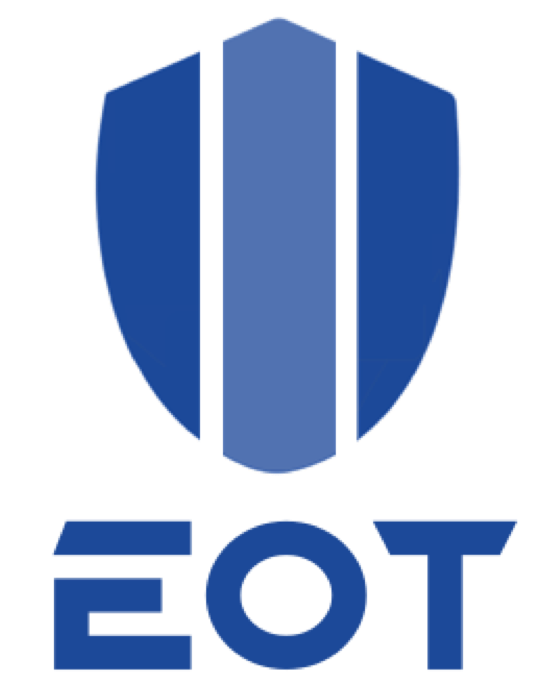- marketing admin
- Articles
IIoT's Secure Path to Innovation and Beyond
Simplifying the understanding of Blockchain technology
Blockchain technology allows multiple people or organizations to keep a shared digital record of transactions / information without the need for a central authority, like a bank or government. It is often described as a “chain” of “blocks” because it consists of a series of interconnected data blocks.
Each block in the chain contains a list of transactions or data, and each block is linked to the previous block using a special cryptographic code. This linking creates a secure and tamper-proof chain of information. Once a block is added to the chain, it becomes very difficult to alter or remove any data stored in it without being noticed.
One of the key features of blockchain is decentralization. Instead of relying on a central authority to validate transactions or maintain the record, blockchain uses a network of computers, known as nodes, that work together to verify and validate the information. This makes it more transparent and less vulnerable to fraud or manipulation since all participants in the network have access to the same information.
Another important aspect of blockchain is its immutability. Once a transaction or data is recorded in a block and added to the chain, it becomes permanent and cannot be easily changed. This attribute enhances security and trust in the system.
Blockchain technology is most commonly associated with cryptocurrencies like Bitcoin, but its potential applications go far beyond that. It can be used for various purposes, such as supply chain management, voting systems, financial transactions, smart contracts, and more. Its decentralized and transparent nature makes it appealing for industries that require secure and reliable record-keeping.
Understanding Blockchain Technology and Its Benefits in IIoT
In recent years, blockchain technology has emerged as a powerful tool with the potential to revolutionize various industries, including the Industrial Internet of Things (IIoT). By providing secure, decentralized, and transparent transactions, blockchain offers a wide range of benefits for IIoT applications. In this article, we will delve into the role of blockchain in IIoT, the challenges in implementing this technology, potential solutions, successful case studies, and future trends in the field.
Blockchain, at its core, is a distributed ledger that allows multiple parties to record and verify transactions without the need for a central authority. In IIoT, where billions of devices are interconnected and generate massive amounts of data, blockchain can play a pivotal role in ensuring secure and efficient operations. One of the key benefits of blockchain in IIoT is its ability to establish trust among participants by enabling transparent and tamper-proof data sharing. This is particularly important in industrial settings where multiple stakeholders need to access and verify data in real-time.
The decentralized nature of blockchain technology also enhances the security of IIoT systems. By eliminating the reliance on a single point of failure, blockchain can mitigate the risk of cyber attacks and unauthorized access to critical data. Moreover, the immutability of blockchain records ensures data integrity and traceability, enabling better auditing and compliance mechanisms in industrial environments.
However, implementing blockchain technology in IIoT is not without its challenges. One major hurdle is
scalability. As IIoT generates a vast amount of data that needs to be processed and stored on the blockchain, the current limitations of blockchain networks, such as transaction throughput and storage capacity, can hinder its widespread adoption. To address this issue, various solutions are being explored, including the development of scalable blockchain protocols, sidechains, and off-chain solutions to optimize performance while maintaining security and decentralization.
Another challenge is the interoperability of different IIoT systems and blockchain platforms. IIoT environments are often heterogeneous, consisting of various devices, protocols, and standards. Integrating these diverse systems with different blockchain platforms can be complex and time-consuming. To overcome this challenge, industry consortia and standardization efforts are underway to define common protocols and frameworks that facilitate seamless interoperability between IIoT and blockchain technologies.
Despite the challenges, there have been notable successes in implementing blockchain technology in IIoT. For instance, in supply chain management, blockchain enables end-to-end visibility and traceability of products, reducing counterfeiting and improving efficiency. The Food Trust initiative by IBM and Walmart is a prime example of leveraging blockchain to enhance food safety and traceability across the supply chain.
In the energy sector, blockchain has been utilized to enable peer-to-peer energy trading, allowing prosumers (those who produce and consume energy) to exchange surplus electricity directly, reducing reliance on centralized energy providers. Projects like Power Ledger and WePower have demonstrated the potential of blockchain in transforming the energy landscape.
Looking ahead, several future trends in blockchain technology for IIoT are emerging. One of them is the integration of artificial intelligence (AI) and machine learning (ML) with blockchain, enabling autonomous decision-making and intelligent data analysis in IIoT systems. This fusion can unlock new possibilities for
predictive maintenance, anomaly detection, and optimization of industrial processes.
Moreover, the rise of edge computing in IIoT will complement blockchain technology by reducing latency and improving responsiveness. By moving certain computational tasks to the edge devices, blockchain networks can operate more efficiently and process data in near real-time.
In conclusion, blockchain technology holds tremendous potential in enhancing the security, transparency, and efficiency of IIoT applications. Despite the challenges in implementation, ongoing research and development efforts are paving the way for scalable and interoperable blockchain solutions. As successful case studies continue to emerge and future trends unfold, the synergy between blockchain and IIoT is poised to transform various industries, ushering in a new era of digital innovation.
Overall, blockchain is a revolutionary technology that enables secure and transparent record-keeping without the need for a central authority. It has the potential to transform various industries by increasing efficiency, reducing costs, and improving trust among participants.





